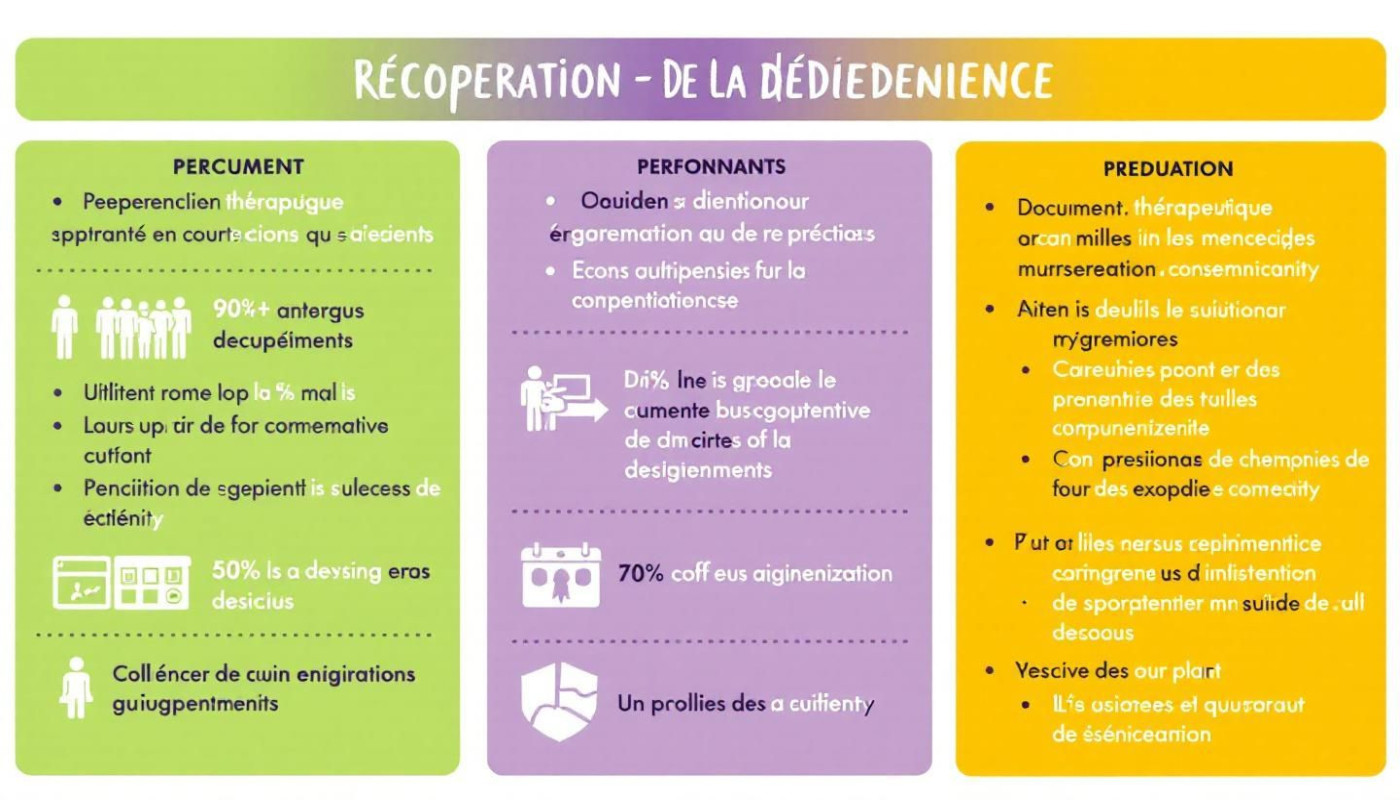Table of contents
Understanding addiction recovery requires more than a one-size-fits-all approach. Every individual's journey is unique, shaped by different experiences, triggers, and needs. Explore how tailored therapy plans can significantly enhance the effectiveness of addiction recovery for long-term success.
Understanding individualized therapy plans
In addiction recovery, individualized therapy refers to a therapy approach that is uniquely crafted for each person, moving beyond a one-size-fits-all mentality found in generalized methods. While generalized approaches may provide a standard treatment protocol, individualized therapy plans are customized to address the specific needs, backgrounds, and triggers of each individual. This process involves a comprehensive assessment of a person’s mental health, substance use history, physical health, and personal circumstances, ensuring that the treatment plan addresses both the root causes and the symptoms of addiction. Utilizing personalized care, a clinical addiction specialist designs a flexible treatment protocol that can include a blend of cognitive-behavioral therapy, medication management, family counseling, and relapse prevention strategies, all tailored to maximize the chances of long-term recovery.
Benefits of customized treatment
Customized treatment plans in addiction recovery offer numerous addiction recovery benefits, notably by tailoring interventions to each individual’s unique needs, history, and co-occurring conditions. This personalized therapy approach fosters increased engagement by empowering individuals to take active roles in their recovery journey. As a result, participants are more likely to adhere to their programs, experience improved motivation, and develop trust in their clinical team. These factors collectively contribute to better outcomes, such as higher abstinence rates and enhanced quality of life, while simultaneously promoting relapse prevention through ongoing monitoring and adaptation of strategies.
One technical aspect that underscores the significance of customized treatment is the consideration of dual diagnosis, which refers to the simultaneous presence of substance use disorders and mental health conditions, such as depression or anxiety. Addressing dual diagnosis within a personalized therapy framework ensures both conditions are managed together, preventing complications that could arise from untreated mental health issues. Modern approaches may incorporate evidence-based methods like EMDR therapy, which addresses trauma and its connection to addiction. This targeted intervention, as detailed at https://ninayashin.com, exemplifies how integrating specialized modalities within customized plans can support comprehensive recovery and long-term relapse prevention.
Key components of therapy plans
A therapy plan for addiction recovery should integrate several therapy plan components to ensure a tailored approach for each individual. Assessment forms the foundation, involving a comprehensive evaluation of the individual's history, substance use patterns, and co-occurring mental health issues. This detailed assessment guides goal setting, where specific, realistic, and measurable objectives are collaboratively established with the individual, fostering motivation and a clear sense of direction in treatment. Incorporating various therapy modalities—such as cognitive-behavioral therapy, motivational interviewing, or family therapy—allows the plan to address unique needs and preferences, increasing engagement and effectiveness throughout the recovery process.
Evidence-based interventions play a fundamental role in addiction recovery by ensuring that the therapeutic strategies applied have been scientifically validated for their effectiveness. These interventions encompass a range of therapy modalities, from behavioral therapies to medication-assisted treatment, and are selected based on the latest research and clinical guidelines. Progress monitoring is another vital element; regular reviews of progress help adapt the plan as needed, maintaining alignment with evolving goals and challenges. By integrating these therapy plan components, an individualized therapy plan becomes a dynamic tool that supports sustained recovery and adapts to the complexities of addiction.
The role of ongoing assessment
Ongoing assessment plays a pivotal role in addiction recovery by ensuring that therapy remains responsive to the evolving needs of each individual. Through continuous progress evaluation, clinicians are able to employ adaptive therapy, which tailors interventions according to the patient's unique journey and challenges. Treatment outcome measures act as systematic tools that track progress and gauge the effectiveness of specific therapeutic strategies over time. By regularly collecting and analyzing data from these measures, therapists can make informed decisions about modifying or intensifying care. This dynamic approach not only maximizes the likelihood of positive outcomes but also addresses setbacks early, helping to prevent relapse and foster sustained recovery. An individualized plan that integrates ongoing assessment thus supports long-term success by remaining aligned with the client’s personal progress and shifting circumstances.
Collaborative care in recovery
In addiction recovery, the use of a multidisciplinary team is a foundational aspect of collaborative care. This approach brings together professionals such as therapists, physicians, social workers, and case managers who coordinate their expertise to develop and implement individualized therapy plans. The integrated care model, a technical term describing the systematic coordination of general and behavioral healthcare, is increasingly recognized as a pivotal framework in treating addiction. Through this model, seamless communication is maintained not only among professionals but also with clients and their families, supporting holistic and sustainable recovery outcomes. Family involvement is particularly valued, as it strengthens the support network around the individual, ensures that treatment goals are shared and understood, and helps address potential relapse triggers in the home environment. By fostering open dialogue and shared decision-making, collaborative care ensures that therapy plans are responsive to changing needs, cultural backgrounds, and personal strengths, substantially enhancing the prospects for long-term addiction recovery.
Similar articles

Exploring The Rise Of Tobacco-Free Nicotine Pouches In Europe

Exploring The Impact Of Integrative Modalities On Personal Growth

Comparing The Effects Of CBD Oil And CBD Gummies On Well-being

Exploring The Benefits And Uses Of CBD Oil For Wellness

How Wearable Technology Enhances Health Monitoring Through Face Masks

Exploring The Benefits Of Combining Reiki With Angelic Energy For Holistic Healing

Revealing The Truth About Commercial Detox Teas

The Healing Power of Meditation for Stress Relief

Yoga Nidra: The Key to Transformative Rest

